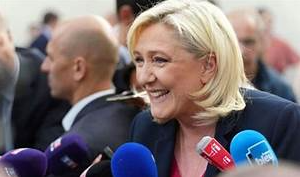Keir Starmer believes that his charm offensive will yield concrete results.
NATO’s first secretary general famously said that the alliance’s role was to keep the Russians out, the Americans in, and the Germans down. In contrast, the European Political Community (EPC), which aims to foster post-Brexit relationships, has a far simpler goal: keeping the UK engaged with the continent. On 18 July, Keir Starmer, who had only been Prime Minister for 14 days, hosted the EPC summit at Blenheim Palace, the historic estate of the Dukes of Marlborough in Oxfordshire, England.
This summit marked a key moment for Starmer as he sought to rejuvenate Britain’s relationship with the EU after years of Brexit-induced tensions. At the NATO summit in Washington the previous week, Starmer had met with President Biden, reinforcing his commitment to global security. But now, in a more intimate setting at Blenheim, he aimed to reset Britain’s stance in Europe. He understood that mending ties with European leaders would be essential in addressing the post-Brexit challenges the UK faces.
Starmer’s approach to foreign relations is based on promoting a tone of maturity, professionalism, and consensus. His objective was clear: to affirm Britain’s unwavering support for Ukraine and reintegrate Britain into European political frameworks. The hope is that this diplomatic groundwork would help address critical issues such as illegal migration and Britain’s place in the European security landscape.
In recent years, Brexit has strained Britain’s ties with Europe, and Starmer believes that these tensions must be resolved for the country to move forward. His vision of a “reset” seeks not just a return to normalcy but a strengthened role for the UK in European matters. With years of uncertainty behind them, British-European relations must now focus on more collaborative and effective solutions.
While the tone of these meetings is important, Starmer knows that it is the concrete results that will ultimately define the success of his approach. By rebuilding trust with European leaders and proving Britain’s commitment to collective challenges, Starmer hopes to establish long-term cooperation. His broader goal is to show that the UK can still play a pivotal role in Europe, even after Brexit, but only through genuine engagement and shared interests.
The challenges ahead are significant. Migration remains a sensitive issue for both Britain and the EU, and Starmer will need to demonstrate that he can manage the UK’s obligations and security needs within a European context. Moreover, his plan to support Ukraine’s sovereignty and work alongside European partners on defense and security issues will be a test of his diplomatic skills.
Ultimately, Starmer’s charm offensive is about much more than rhetoric; it’s about delivering real results in areas that affect both Britain and Europe. As the post-Brexit era unfolds, this reset could provide the foundation for a more stable, cooperative future. But the outcome will depend on how effectively these relationships can translate into tangible action on shared priorities.

